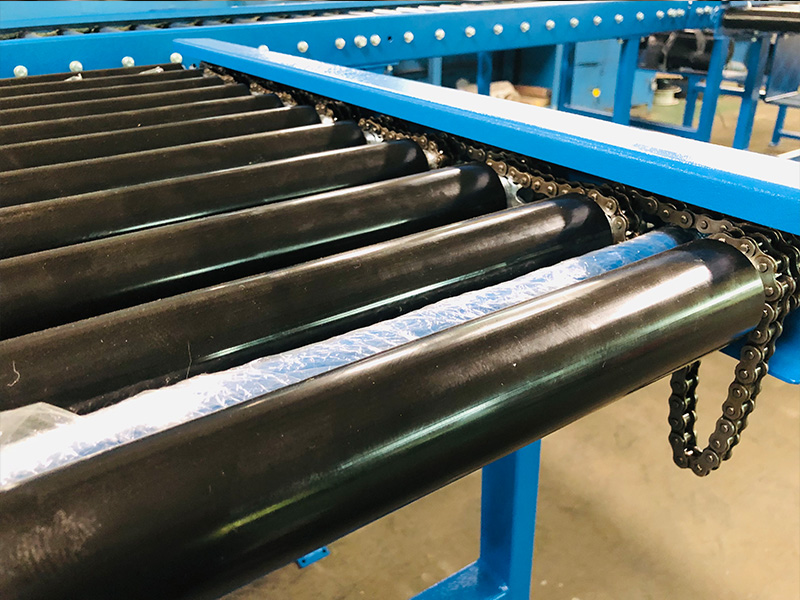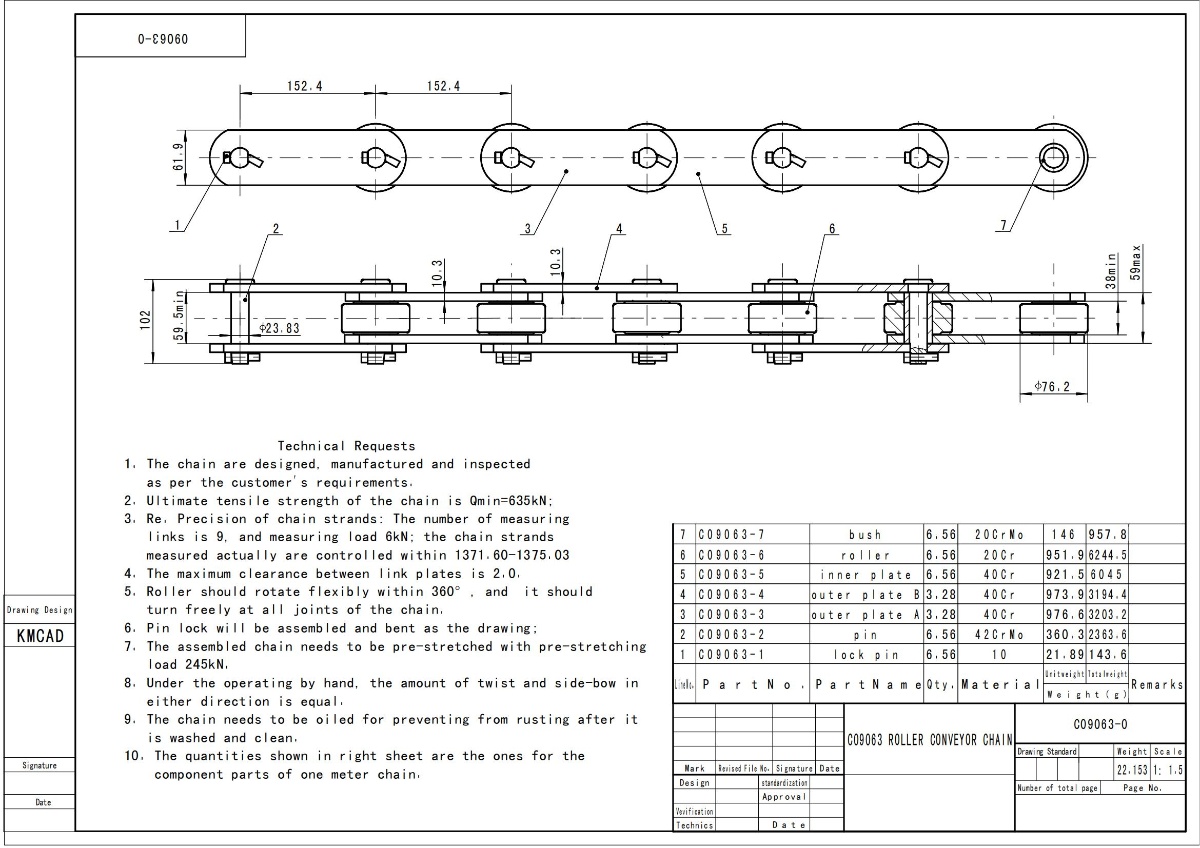
Roller conveyor chains are widely used in industrial and commercial applications where heavy loads need to be moved efficiently along a fixed path. Their robust design and ability to handle demanding environments make them indispensable in many sectors. Here's a breakdown of where they are commonly used:
1. Manufacturing and Assembly Lines
Use: Transport parts and assemblies between workstations.
Industries: Automotive, electronics, appliance manufacturing.
Benefit: Precise, continuous movement with synchronization for automation.
2. Material Handling and Logistics
Use: Move packaged goods, pallets, or bulk items in warehouses and distribution centers.
Industries: E-commerce, retail, food and beverage distribution.
Benefit: Durable enough to run continuously under heavy loads.
3. Construction and Building Materials
Use: Convey heavy materials such as concrete blocks, tiles, and steel components.
Industries: Cement plants, brick manufacturing, prefab construction.
Benefit: Handles abrasive materials and rugged environments with ease.
4. Steel and Metal Processing
Use: Transfer hot or heavy steel products like billets, pipes, and coils.
Industries: Foundries, rolling mills, metal service centers.
Benefit: High-strength chains withstand high temperatures and shock loads.
5. Agriculture and Food Processing
Use: Transport grains, produce, and packaged food products.
Industries: Grain handling, meat packing, bottling, dairy plants.
Benefit: Stainless or coated roller chains are available for hygiene and corrosion resistance.
6. Automotive Industry
Use: Move car chassis, body panels, or engines through production stages.
Industries: Vehicle assembly plants, parts production.
Benefit: High precision and load capacity ensure consistent throughput.
7. Mining and Quarrying
Use: Convey rocks, ores, and extracted materials.
Industries: Coal mining, mineral processing.
Benefit: Engineered for heavy-duty, dusty, and corrosive conditions.
8. Waste Management and Recycling
Use: Transport scrap, recyclables, and sorted waste streams.
Industries: Recycling facilities, municipal waste sorting.
Benefit: Durable chains with minimal maintenance requirements.
9. Heavy Equipment and Machinery Manufacturing
Use: Move large components during fabrication or finishing.
Industries: Aerospace, marine, heavy machinery.
Benefit: Roller chains handle oversized parts and high-weight loads.
Key Advantages of Roller Conveyor Chains
High load-bearing capacity
Long service life with proper lubrication
Compatible with automated systems
Available in corrosion-resistant and wear-resistant variants
Conclusion:
Roller conveyor chains are crucial for efficient material flow and automation in industries ranging from steel and mining to food and automotive. Choosing the right type depends on load, speed, environment, and hygiene requirements.
GIDI CHAIN LIMITED supplies lots of roller chain, conveyor chain, Leaf Chain, welded chain, forged chain, Palm Oil Mill Chain, Hoisting Chain, Mine and Metallurgy Chain, etc., totaling over 3000 varieties. and 90% of chains are exported worldwide, mainly to Southeast Asia, Europe, North America, and South America. Chains are welcomed by customers for their excellent quality. Our company owns more than 100 sets of advanced and professional manufacturing equipment. A Perfect and rigorous QC system is implemented in every process from material purchasing to finished product packaging. Also, we have passed the ISO9001:2015 Quality Management System Certification.
More Detail: www.gidi-chain.com

